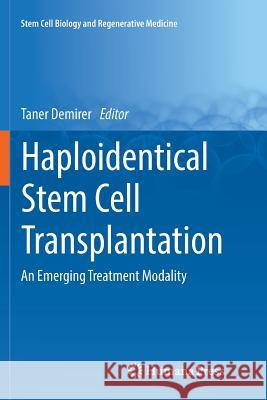Haploidentical Stem Cell Transplantation: An Emerging Treatment Modality » książka
topmenu
Haploidentical Stem Cell Transplantation: An Emerging Treatment Modality
ISBN-13: 9783319879994 / Angielski / Miękka / 2018 / 199 str.
Kategorie:
Kategorie BISAC:
Wydawca:
Humana Press
Seria wydawnicza:
Język:
Angielski
ISBN-13:
9783319879994
Rok wydania:
2018
Wydanie:
Softcover Repri
Ilość stron:
199
Waga:
0.31 kg
Wymiary:
23.39 x 15.6 x 1.17
Oprawa:
Miękka
Wolumenów:
01
Dodatkowe informacje:
Wydanie ilustrowane











